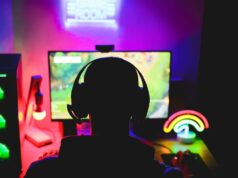
Being a student in a digital campus environment is no more surprising or unusual since the pandemic times when almost every learner worldwide had to use at least one virtual learning platform and cope with all the changes of virtual studies.
As a rule, it has not been easy for everyone, and introduced certain challenges. Speaking of advantages, things have been eventually polished as teachers saw what aspects had to be addressed and how the use of gamification helped to address the lack of attention and focus among students who needed more discipline.
At the same time, modern schools and colleges tend to use a hybrid style of education where one can combine physical and remote methods of learning. It allows one to stay in control and implement technology as a supplementary tool, not as the sole way to deliver one’s message and arguments.
How Technology is Transforming College Life: Digital Campus Implementation
Lack of Proper Teacher’s Control

Technology comes with a greater share of independence as students rely on the use of automation and tend to do more work on their own. It is both good and bad, depending on how we look at it.
The problem is that most students will not feel confident enough to ask for help as they spend more time trying to finish an assignment and format it how they can. If you are one of the students in such a situation, you can share write my thesis message or simply talk to an expert online to voice your concerns and avoid confusion!
No matter if you need to edit something or double-check your structure and formatting, turning to human guidance is always essential!
The Use of Virtual Assistants
The most apparent change of the last decade is the use of tools like ChatGPT and Grammarly. While it became much easier to fix grammar mistakes and obtain well-structured information more easily, it takes away an element of analytical work.
In other words, most students will not double-check the provided facts and will not know why a certain sense has been fixed. While we learn how to finish our tasks easier and use automation, we do not really take time to analyze things and make our own decisions.
Another important factor to consider is related to plagiarism risks, as many students tend to cheat and take an easy way out to get rid of their daily academic challenges!
Dealing With More Data

Another challenge of the digital campus that affects college life is the presence of unsorted data and unverified secondary sources. Just think about frequent quotes from Facebook or Twitter that we can see in research papers submitted these days, presented as a piece of academic evidence.
It can be good when the talk goes about primary sources like interviews, yet one can see how students tend to share information that is not verified and has no original author. The use of a digital environment makes dealing with a plethora of facts even more challenging!
Flexibility and Planning
Without a doubt, the use of a digital campus provides students with more flexibility and grants access to many extracurricular activities. Since there is no need to spend time and funds on logistics, remote studies only work well when it comes along with proper planning. Learn how not to waste time in college.
Focus on the use of alerts and the use of outlines for all the important deadlines. The same is true for learning one’s LMS platform and learning how to take notes, as this old trick will work even for a virtual learning environment. Learn it once, and it will always pay back when you spend less time to get things done!
Cooperation and Group Projects

The use of whiteboards and smartboard facilities in the classroom can help to finish joint projects more easily and ensure that every student is involved in a project. It also helps to improve communication and cooperation skills, which is especially important for engineering and nursing disciplines.
This is where the use of a digital campus can help save time on logistics and allow students to work on the same smartboard by sharing ideas or critique analysis right away!
Better Control and Academic Tracking
The use of a digital campus environment has allowed us to introduce progressive grading and personalized control by the teacher. It has transformed college life in terms of privacy and the ability to address the unique needs of every student privately.
It also became much easier to control the progress of those learners who may struggle with a particular subject. One can see more info to learn how technology can help us track the success ratio and determine the best ways to provide helpful solutions without affecting students’ confidence and popularity.
The Lack of Emotional Attachment
Although the use of a digital campus can provide modern learners with access to greater simplicity, access to information, the use of virtual assistance, and flexibility, it often comes with a problem known as the lack of an emotional attachment.
The challenge here is that being in a virtual environment does not appear different to most students as they approach it the same way as when being on social media or browsing the web.
As a rule, such activities have a low focus as people only seek out things that inspire or motivate them, looking through lots of different posts and graphical elements. Keeping this aspect in mind, the key is to make things more interactive and add more surveys and multimedia assignments.
This is where technology can help a lot, as one can implement virtual reality solutions and the use of Augmented Reality as a way to keep everyone connected and inspired.












